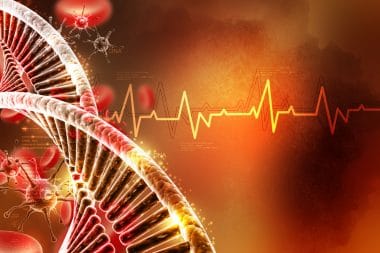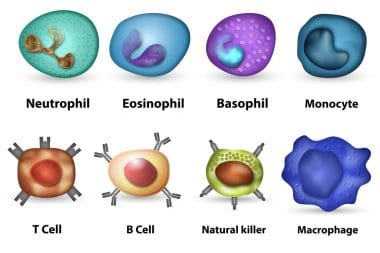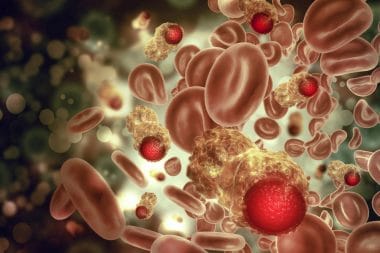BPH and prostate cancer are two very different conditions that have similar symptoms and you are not at a higher risk for prostate cancer if you have BPH. Benign prostatic hyperplasia is an abnormal prostate enlargement that occurs in men as they age. Prostate cancer, on the other hand, is cancer that develops within a man’s prostate gland.
This article discusses the similarities between the two conditions and explains how you can diagnose and treat each of them. Though they are similar, these two conditions require specific treatments and you should immediately contact your doctor if you begin noticing any symptoms. Additionally, prostate supplements such as Prostate 911 can help reduce symptoms, though research is still needed to confirm their efficacy.
What Are BPH and Prostate Cancer?
Both BPH and prostate cancer affect the prostate gland. The prostate is a walnut-sized gland just above the bladder. The proper function of the prostate is to produce the fluid part of the semen. The prostate wraps around the urethra. It also carries urine from the bladder out of the body.
What Are the Symptoms of BPH and Prostate Cancer?
BPH and prostate cancer have similar symptoms, so it can be difficult to determine which one is present. As men age, their prostate gland is more likely to grow, and as it grows, it squeezes the urethra. The pressure can prevent urine from getting through the urethra and out of your body. However, prostate cancer symptoms don’t typically start until cancer grows large enough to put pressure on the urethra.
Symptoms of both BPH and prostate cancer:
- Persistent need to urinate
- Trouble beginning your urination
- Weak or dribbling urine system
- Infrequent urine flow that starts and stops
- Feeling like your bladder is never empty
Prostate cancer might also include these symptoms:
- Painful or burning sensation
- Blood in your urine
- Trouble getting an erection
- Painful ejaculation
- Less fluid when you ejaculate
- Blood in your semen
What Are the Risk Factors?
As you age, your likelihood of developing BPH or prostate cancer increases and booth conditions don’t typically affect men under 40. There are a few other contributing factors that pose risks for developing both conditions:
- Your race: BPH and prostate cancer are more common in African-American men than in Asian-Americans.
- Your family history: People can have genetic predispositions to both BPH and prostate cancer.
- Your weight: Obesity increases your risk for BPH, but it’s not clear how weight influences prostate cancer.
Other risks for BPH include:
- Pre-existing health conditions: diabetes and heart disease increase the likelihood of suffering from BPH and prostate cancer.
- Some medicines: some blood pressure-lowering medicine known as beta-blockers can affect your BPH risk.
Other risks for prostate cancer:
- Your location: Men who live in North America and Europe have an increased likelihood of developing prostate cancer than those living in Africa, Asia, and South America. Your risk of dying from prostate cancer is highest in the northern states, which may be due to lower levels of vitamin D.
- Environmental exposures: Firefighters often work with chemicals that increase their risk of developing prostate cancer.
How Is Each Condition Diagnosed?
To diagnose both BPH or prostate cancer, you should see a urologist. Doctors will use mostly the same tests to diagnose both of the conditions.
- Prostate-specific antigen (PSA) test: The PSA test detects a protein that your prostate makes. When your prostate grows, it produces more of the protein. Higher PSA levels tell your doctor that the prostate has, in fact, grown. However, it doesn’t tell them the cause of the growth.
- Digital rectal exam (DRE): Your doctor inserts a gloved, lubricated finger into your rectum. The test shows whether your prostate is just large or whether it is abnormally shaped. You will need additional tests if your doctor rules out BPH as the cause of your symptoms.
Additional Tests to Diagnose BPH
There are additional tests to confirm you have BPH that includes the following:
- Urinary flow tests that measure the speed of your urine flow
- Post-void residual volume test measuring how much urine is left in your bladder after you urinate
Additional Tests to Diagnose Prostate Cancer
- Ultrasound waves that produce a picture of your prostate gland.
- A biopsy that removes a sample of your prostate tissue to check it under a microscope for abnormalities.
BPH Treatments?
Accepted treatments for both BPH and prostate cancer depend on the size of your prostate and the severity of your symptoms. Mild to moderate symptoms don’t require as thorough of treatment methods and your doctor may or may not prescribe one of the following medications:
- Alpha-blockers- relax muscles in your bladder and prostate to help you urinate more easily.
- 5-alpha reductase inhibitors that shrink your prostate
For severe BPH symptoms, doctors may recommend surgery. Surgeries for BPH include:
- Transurethral resection of the prostate: removes the inner part of the prostate.
- Transurethral incision of the prostate: small incisions in the prostate that allow urine to pass through it.
- Transurethral needle ablation: uses radio waves to burn off prostate tissue
- Laser therapy: uses laser energy to remove excess prostate tissue.
- Open prostatectomy: This procedure is only for people with excessively enlarged The surgeon makes an incision in your lower belly and removes prostate tissue through the opening.
Prostate Cancer Treatments
Treatments for prostate cancer include.
- Surgery
- Radiation therapy
- Cryotherapy
- Hormone therapy
Conclusion- Are People With BPH at-Risk for Cancer
Having BPH does not inherently put you at risk for prostate cancer, though the two conditions have many of the same symptoms. Both BPH and prostate cancer cause issues with urination such as nocturia, feeling like you can’t fully empty your bladder, or feeling the frequent need to urinate.
The treatment for each condition varies significantly, as BPH is not a life-threatening condition. Prostate cancer treatments are largely similar to other cancer treatments including, surgery, radiation therapy, and chemotherapy.
Though there is no cure for BPH, there are supplements on the market that help reduce symptoms. You can also reduce your risk of both prostate cancer and BPH with a healthy diet and routine exercise.








Reply